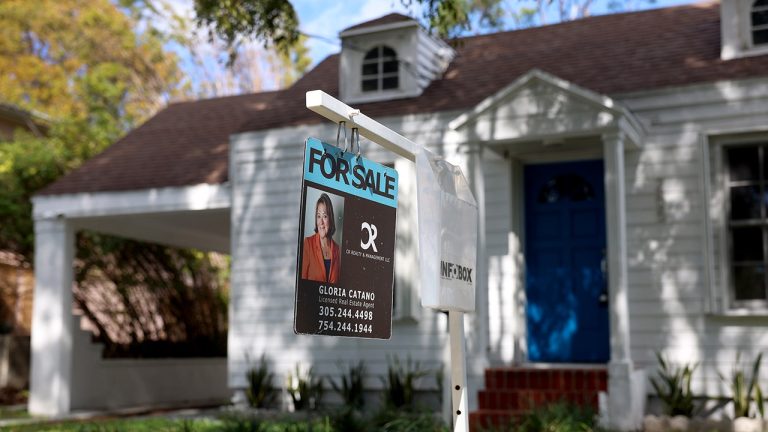
Around one million homeowners are set to pay at least £500 more on their mortgage payments by the end of 2026, the Bank of England has said.
A charity leader has warned many people may “lose their home” as they come off their fixes and are faced with huge increases in monthly repayments.
In total, up to 4.4 million homeowners are expected to exit fixed deals between the start of the central bank’s rate-hiking cycle and the end of 2024.
More than two million households will pay between £200 and £499 more per month by the end of 2026, the bank stated.
Pastor Mick, who runs Church On The Street, a charity that helps people struggling through the UK’s Cost of Living Crisis said: “These new mortgage rates and the fact that inflation is rising through the roof is likely to leave many people to lose their homes.
“It’s long been considered a privilege to be able to own a home, but the consequences of defaulting on a mortgage or having your home repossessed can mean damage to your credit rating and financial stability, which can lead to debt and housing insecurity.
“Many ordinary people are barely making it as it is – they simply cannot survive the expectation of paying an extra £500 a month, meaning they may lose their homes and be thrown into a cycle of poverty and homelessness.”
Can’t pay mortgage deal? Steps you can take:
Since the announcement of the mortgage charter, mortgage holders can switch their mortgage deal to an interest-only plan for up to six months.
This will temporarily bring down the monthly payments and they can switch back to their original deal with no impact to their credit score.
Mortgage holders will also be able to extend the length of their term.
As well as this, customers approaching the end of a fixed-rate deal will have the chance to lock in a new deal up to six months ahead.
Borrowers are also not allowed to have their homes repossessed within 12 months of their first missed mortgage payment.
Homeowners can also approach their lenders for advice on repayments without impacting their credit score.
To take advantage of the support, borrowers should contact their mortgage provider directly.
For more information, Britons can visit the Government website.
Coming off a mortgage deal? Steps you can take:
Ben Thompson, deputy CEO at Mortgage Advice Bureau has reassured homeowners across the UK that there are some actionable steps to take for those coming towards the end of their current fixed-rate deals.
Get into the details
He said: “Finding out exactly when your current mortgage rate is set to end, your outstanding balance, and how much you currently pay each month is key. From here, you can research what rates are currently available, and what your options might be.
“Some homeowners on fixed deals will have read about the previous 12 rate rises but, until now seen no change to their mortgage repayments. Therefore, for anyone whose mortgage deal is soon coming to an end, it’s crucial to know and come to terms with how much repayments are likely to go up by.”
Get in early
Additionally, with interest rates likely to go up before they come down, Britons should consider locking in a new rate with their lender early. Many lenders will allow people to move onto a new rate three or six months before the official end of their current rate.
However, he warned: “Be aware that if mortgage rates do come down, you might find yourself on a higher rate than that available on the market. The important thing here is to get the facts from your lender, so you know what options are available to you.”
Know your credit score
He stressed the importance of knowing what one’s credit score is and how to fix it as new affordability checks will take place.
This might involve closing old bank accounts, making sure they are on the voters/electoral roll, declaring their addresses, or looking at their credit limits.
Exclusive rates and deals
In many instances, a mortgage adviser will be able to beat deals one’s mortgage lender is offering as they will be able to access deals from circa 100 lenders, not just one.
He concluded: “Starting the process early will make it easier to anticipate what’s coming, and gives your adviser time to find a solution that works for you and your unique circumstances. Remember that you aren’t alone in this, and there are people to help you.”







